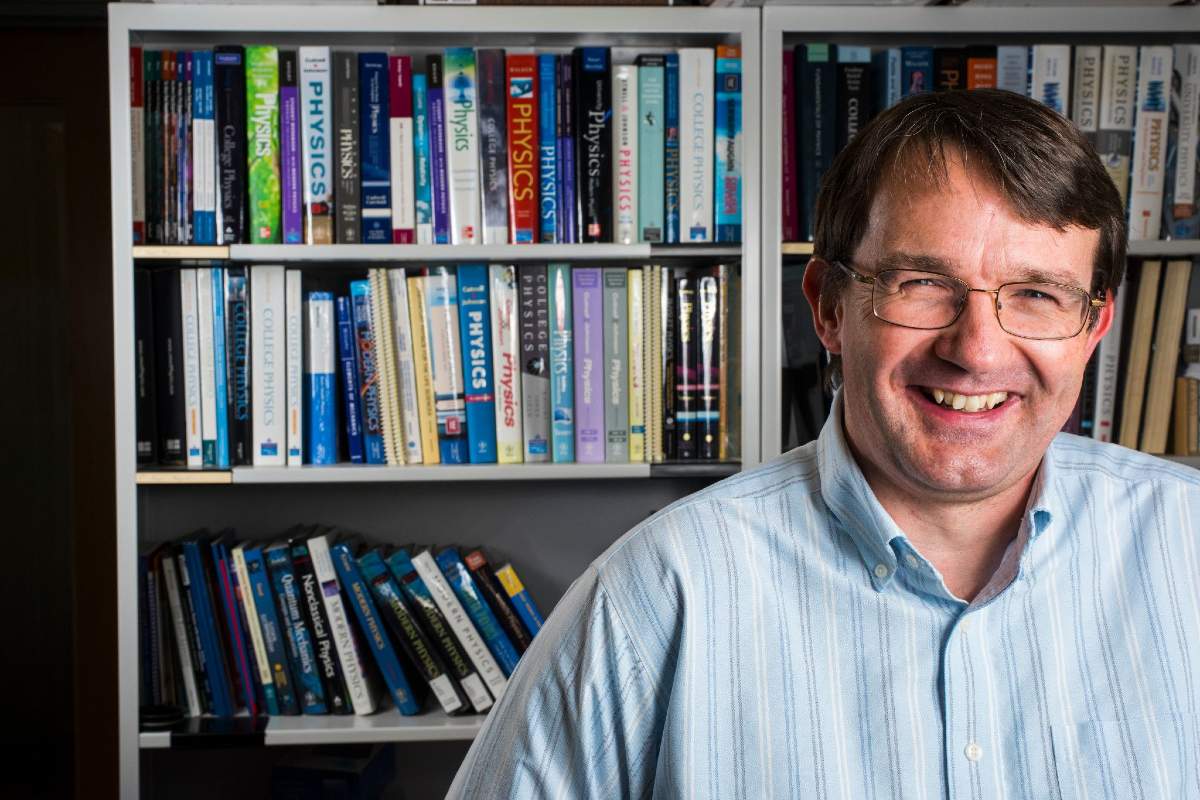Meet Roger Moore
Katie Willis - 28 October 2021

A former member of the ATLAS Experiment at CERN that discovered the long-sought Higgs boson, in 2012, Roger Moore stepped into the role of chair of the Department of Physics on July 1st. Photo credit: John Ulan
A former member of the ATLAS Experiment at CERN that discovered the long-sought Higgs boson, in 2012, Roger Moore is no stranger to exploring new frontiers in particle physics. On July 1, 2021, Moore stepped into a new role as chair in the Department of Physics.
Learn more about Moore, and his vision for the department.
Tell us about the focus of your research program.
I study extremely high energy physics interactions searching for some of the new physics that we know must exist beyond our current model of particle physics. I used to work on the ATLAS Experiment at CERN where we found that last missing piece of the standard model, the Higgs boson.
I now work on the IceCube experiment working with even higher-energy neutrinos, which create tiny flashes of light in the ice 2 kilometres below the surface of the South Pole. I'm also working as part of a University of Alberta team leading the development of a new, high-energy neutrino detector, P-ONE, deep in the Pacific Ocean off the west coast of Vancouver Island.
What is your favourite course to teach?
That's a tricky question to answer since there are two courses that I absolutely love teaching: the second-year introduction to modern physics course and the fourth-year introduction to particle physics course. The first of these is great because you get to introduce students to both special relativity and quantum mechanics—both of which involve concepts that are incredibly different from the Newtonian physics they have learned about up to that point.
However, if you force me to pick just one I'd have to go with particle physics because I had the privilege to be teaching this course just after we announced the discovery of the Higgs boson. Being able to share knowledge that I helped discover and which was not yet in any textbook was incredibly fun and rewarding. I think it also shows exactly why both teaching and research together are so important.
What are the biggest strengths and opportunities that you see for the Department of Physics in the next year?
There are many exciting opportunities for our various research groups in the department such as the federal government’s national quantum strategy. However, an opportunity that will have department-wide impact is the renewal of our existing undergraduate programs. This is happening as part of a faculty-wide initiative. It will enormously increase the flexibility of our programs, allowing students to take minors in other subjects and also enabling enrollment management at the department or program level. Combined with the surging demand for science degrees and Alberta's increasing number of high school graduates, this will give us a fantastic opportunity to reach a far larger and more diverse group of students and build a firm foundation to grow our research and teaching programs in the future once we survive the current budget storm.
What is your first memory at the U of A?
Walking across campus to get to my office in -40 C weather for the first time—and being surprised that it did not feel colder.
What’s something your coworkers don’t know about you?
I once got into trouble at school for adding an unauthorized, extra program to a floppy disk labelled "Newtonian Physics Simulations". Apparently our physics teacher did not think that a simple pinball game was quite in the spirit of what was intended.
Where is your favourite place on campus?
The Indian takeaway in HUB mall—I love Indian food!
If you were enrolling in one course, program or degree right now, what would it be?
A geology degree with lots of computer science option courses. I took geology as part of my first year as a physics undergrad and loved it so much—especially a field trip we had to the Isle of Arran—that I came very close to switching programs. Plus, I love programming and computers but had very few opportunities for a formal education in computing science.
What advice would you give your 18-year-old self?
When learning about relativity don't believe anything you'll hear about causality because, if you are receiving this advice, it's clearly very wrong!